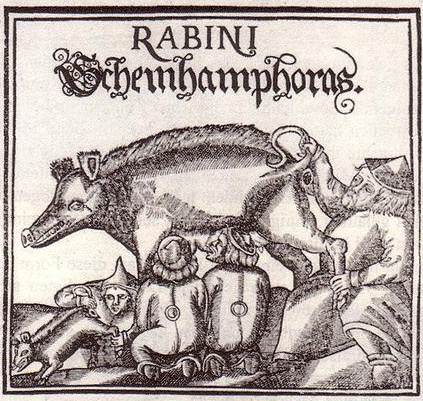Martin Luther in Life and Death, Part 2: The Devil in Luther's Dreams
The Devil in Luther's Dreams, Part 1
Last week, in the first installment of this series, which we shall re-title “Martin Luther in Life and Death”, we gave a background on the life of the Reformer, and the events which sent him on the course which he followed. To fully understand Martin Luther as well as this entire period of German history, we must understand the work of John Wycliffe, and the earlier and notable Czech reformer Jan Huss, who inspired the Hussite Wars in rebellion against the Roman Catholic Church in the opening quarter of the 15th century, a hundred years before Luther's own contentions with the church were published. Later, even Luther considered himself a Hussite. We shall present pertinent information about these men in the near future.
However now, in order to understand the pressing need for what is called the Reformation, we must understand what it was that men such as Luther sought to reform. His initial desires were not to break from the Roman Church, but to bring Church policies into line with Scripture. When he saw that was impossible, only then the Lutheran Church was formed. Last week, presenting a summary of Luther's life and some of the myths surrounding it which was written by John Tiffany, we saw the story of The Devil and Luther's Inkwell. Because Luther had written that he “threw his inkwell at the devil”, the myth arose that he was pestered at night by a demon and he had thrown his inkwell to chase it away. Yet it is more likely that Luther was describing the publication of his 95 Theses as the throwing of his inkwell at the devil, the devil being the Roman Church itself.






 Please click here for our mailing list sign-up page.
Please click here for our mailing list sign-up page.








Recent comments